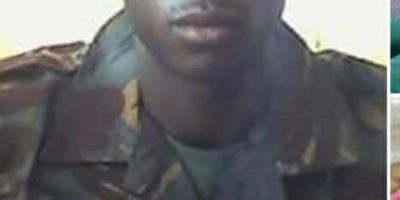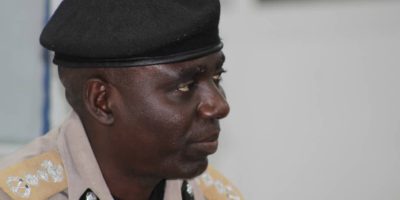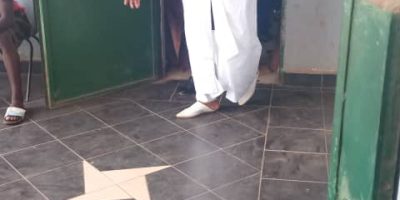By Halimatou Ceesay
State and defense lawyers in the alleged murder trial of UDP Solo Sandeng involving former NIA Top officials on Monday 11th December, 2017 battle over the testimony of 4th Prosecution witness Saidu Jallow before Justice Kumba Sillah Camara of the Banjul High Court.
The accused persons are: Yankuba Badjie, former director of NIA, Louis Gomez, former deputy director of NIA, Saikou Omar Jeng, former director of Operations NIA, Haruna Susso, Yusupha Jammeh, Tamba Masireh, Lamin Darboe and Baboucarr Sallah, and Lamin Lang Sanyang a doctor.
Senior Counsel A.A.B Gaye, R.Y Mendy, L.S Camara, Y. Senghore and C. Gaye appeared for the state. The defendants were represented by C.E Mene, E.E Chima, E.A Gomez, A.Y Hammah, S. Kennedy, U. Achigue and D. Dago.
The witness Saidu Jallow a police sergeant at the Police Intervention Unit said he served 11years in the police force. He said on the said date he was on duties at the Kanifing sitting inside the barracks at the front view when he saw a police truck entering the barracks with people.
He said he did not see the people in the truck. “They were taken to the PIU Hall where they were detained, and accused of being UDP protesters”.
“What happen thereafter?” Counsel asked.
At this juncture Lawyer Mene stood up and object strongly to the question, as he said the question is leading to an extent that it suggests to the witness that something happened thereafter.
In response L.S Camara said “this question is not leading. A leading question is a question suggesting an answer and this question asked is not suggesting any answer. I urge my lady to overrule the objection and allow the witness to answer.”
Replying on points of law, Counsel Mene said L.S Camara’s submission on the position of the law is misconceived and incomplete definition of a leading question. “A leading question is either a question which suggests an answer as submitted by my learned friend or a question which assumed a fact. The witness did not say something happened. If he had said something happened then that is the time counsel can asked him what happened.”
However, the trial judge then ruled in favour of the state saying the question is not leading and that the witness is allowed to answer it.
Continuing his evidence-in-chief, the witness said their names were taken by Sub-Inspector D.O Samba Bah. Bah brought the list to my office to type their names, which I did and returned the list back to them, Jallow explained.
He added that those who were present were the former IGP Yankuba Sonko, former NIA Director Yankuba Badjie 1st accused, Deputy Crime Management Coordinator Sarr and Superintendent Fakeba.
Can you see any one of them or all of them in this court, asked Counsel L.S Camara
Yes, the former NIA Director Yankuba Badjie”, replied the witness.
The witness was then asked by Counsel Camara to walk up to where the accused person are seated and identify Yankuba Badjie to the court.
He then came down from the dock and walked up to where the accused persons were seated and points at Yankuba Badjie. He then walked back to the dock to continue his testimony.
Further testifying, Pw4 told the court that one of his junior officers came to him and told him that five people among the arrestees were taken to the NIA Headquarters.
Counsel Mene however object to that evidence saying it is obviously hearsay. “The witness is not allowed to give hearsay evidence before the court. I urged my lady to expunge that part of his evidence that he was told,” Mene said.
In response Counsel Camara told the court that Mene misconceived the constitutional provision on hearsay evidence citing law to support his argument.
However the trial judge again overruled the objection.
“Can you state the names of those 5 people taken to the NIA headquarters?” counsel asked.
Mene again objected to the said question saying that base on the earlier ruling by the trial judge that the statement is allowed simply that the statement is made and not that it is the truth. He said the question assumed that the truth of the statement has been established and that whether he knows the five names presupposes that the statement is true. He said the question is assumed that the statement is the truth and is leading.
In response L.S Camara relied on section 197 of the evidence act which defines a leading question.
Mene replied on Points of law but the trial judge ruled in favour of the state and allowed the witness to answer the question.
In answering the witness said he remembered four of them namely: Saderr Secka, Ousman Njie, Nogoi Njie and Ebrima Solo Sandeng.
The case continues.



Ma sha Allah great and thanks for sharing